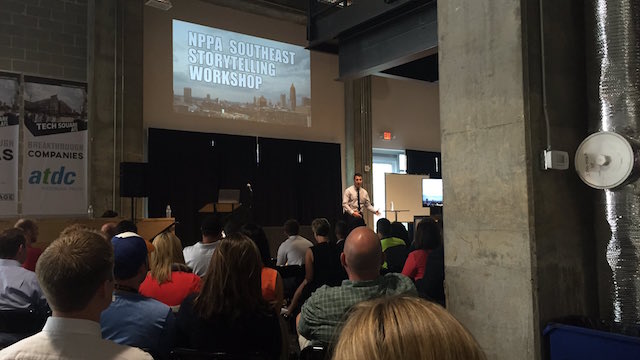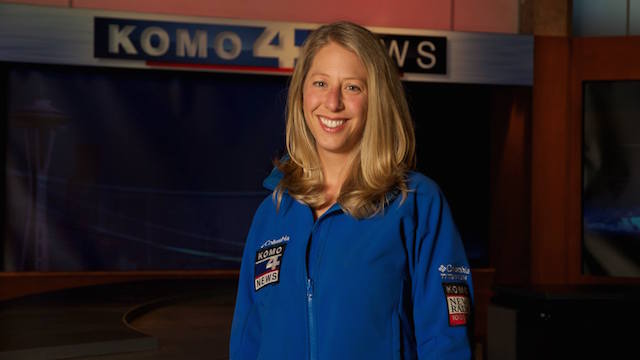This entry initially appeared on the Telling the Story blog last year. I rewrote and expanded it for 2018, and a version will appear in the next edition of News Photographer magazine.
My first experience at a journalism workshop was, well, not good.
I was a new college graduate, looking for my first job in TV. I had won a national college radio award and was invited to accept it in Las Vegas, at a side convention connected with the enormous NAB Show. At the time I didn’t drink, didn’t gamble, and didn’t dip into the types of nightlife and debauchery for which Vegas is most known. So I ate at a few buffets, caught a concert by a Beatles tribute band, spent ten minutes accepting my award, and meandered around NAB Show unable to access anything of value.
I didn’t need to see the latest camera lenses and production trucks. I needed a job. I wasn’t going to find one here. I left unimpressed with the workshop experience. For the next eleven years, I never considered attending another.
That was a mistake.
These days I sound the clarion for workshops. When I get asked to speak, I rarely turn them down. When I don’t get asked to speak, I sometimes go anyway and always encourage others to join. Why? I love the passion and enthusiasm that always emerge.
Rarely does our business make time for education. We are expected to learn on the fly and develop our skills while making all of our deadlines in the daily crunch. This is not unreasonable; in fact, I have always found I learn more by doing than watching.
Maybe that’s why I once balked at workshops. Yes, my Vegas experience left a stain, but my entry-level bank account didn’t compel me to drop hundreds of dollars (and valuable vacation days) to listen to a few people who I wasn’t sure I’d value anyway. I prized my own independence and unique viewpoint as a storyteller. I didn’t want to learn how to tell stories like everyone else.
I don’t deny any of these reasons. And as a new father who now funnels much of my money and spare time toward my daughter, I remain stingy and selective with my workshop dollar. I also still prefer to learn by doing.
But I find great value in watching. And I realized that value eleven years after Vegas, when I finally dipped again into workshop waters.

